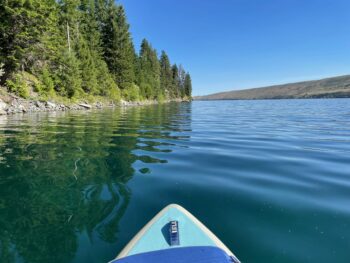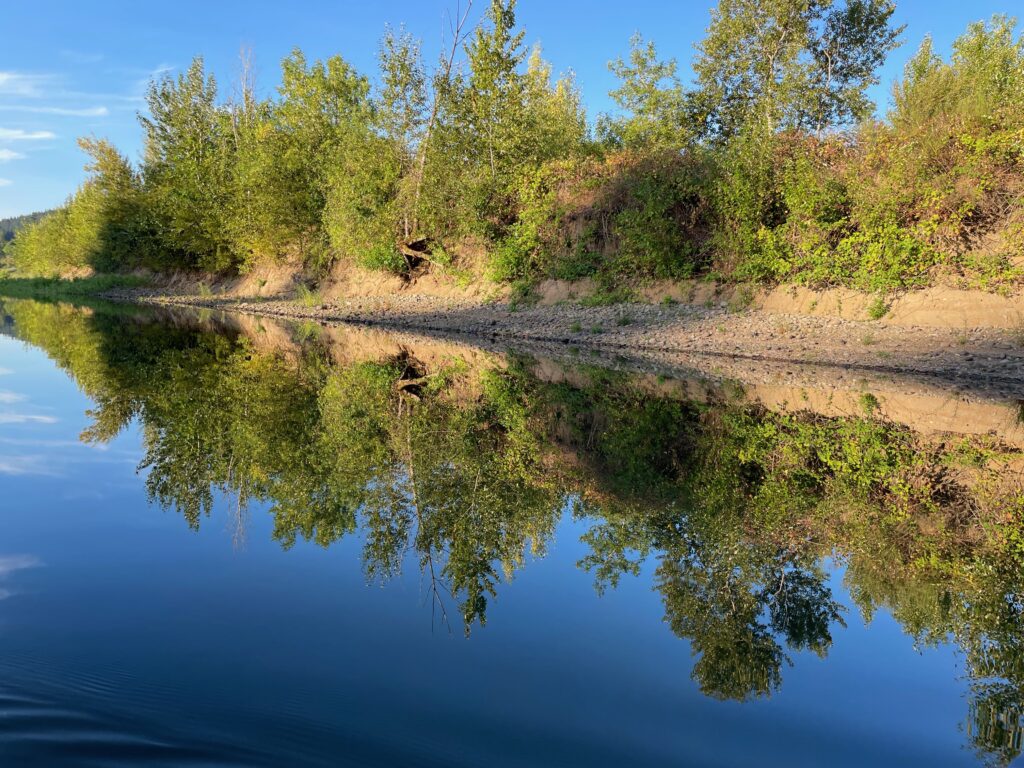I recently wrote an essay for CHOICE’s LibTech Insights blog entitled “Building a Better Library Tech Future with Slow Librarianship.” It provides a brief introduction to slow librarianship, how it relates to library technology, and how our profession’s reification of innovation has kept us from really focusing on the needs of our patrons. I know so little has been published about slow librarianship, so I’m hoping it will introduce the concept to some folks.
I hope you’re having a wonderful summer! With the exception of the chronic pain I’ve been experiencing, summer has been absolutely perfect. I’ve been having a wonderful time with my family and have had time to do some good reflecting. I’m taking part in a mid-career peer-mentoring program called PeMento this summer which has been really valuable for me as I get ready to start my sabbatical in September. The goal of the program is to build relationships with other mid-career librarians and develop a five-ish year plan for your career. I’d come into the summer thinking that I wanted to find ways to make time to focus more deeply on the creation of online tutorials (given that I’d failed to convince my boss to give me release time to do this work or to let me give up any of my liaison areas and thus have had to squeeze it in with everything else). But I realized that what I wanted to do instead was create a plan for my life rather than my work — maybe not a five year plan though as my son will be in college by then and it’s too sad to even contemplate.
I’ve given much of the best parts of myself to my work for the past 18 years. I’ve muscled through migraines in order to teach classes and then collapsed and was useless as soon as I got home. In Spring of 2020, I supported my colleagues who were new to teaching online more than I supported my son who was new to isolation and online elementary school. I can’t tell you how many nights I sat with my family watching TV while answering emails as if that was somehow “quality time.” And even though I’ve gotten better at setting boundaries in my work over the past three years, it still takes up enormous real estate in my head. There’s a difference between physical and emotional boundaries and I still haven’t quite mastered how to create the latter. And now I was thinking about how to squeeze valuable work that was clearly not prioritized by my boss and my organization into my already full-to-the-brim workload? No. Why not instead figure out what I want out of my life for the next four years and then figure out how to fit work into that? I want to be ambitious about MY LIFE. How do I make sure I save the best of myself for my family? What experiences do I want to make sure to have with my son before he graduates from high school? How do I make sure to really prioritize my physical and mental health? How do I prioritize doing things that bring me joy like kayaking and hiking? What do I need to do to care less about work, to cultivate a healthy emotional distance? I’m still not sure exactly what my plan is going to look like, but it definitely will be focused more on finding meaning in my life rather than my work.
I spent a long time looking for work to fill me up because I believed it was how I could prove that I was enough (to myself, my parents, the world). Capitalism programs us to tie our sense of worthiness to our identities as workers. But work will never fill me up the way time with my family can; the way a walk in the woods can; the way paddling a kayak across glassine waters can. I am so grateful for the clarity that this program has given me. Slow libraries would encourage people to prioritize their lives (family, friends, health, etc.) over work because we can only do our best work when we’re at our best. Cultures that incentivize grinding are also cultures that create burnout.
Another thing I started doing this summer was spending a lot less time on social media, which has felt good. While I’m open to things changing in the future, for now, I’m just not finding much value in spending time on Twitter and I’m not definitely not interested in joining any of the newer social networks. I’m really feeling a lot more JOMO (joy of missing out) than FOMO these days and I’m happier when I spend less time on my computer. PeMento has reminded me the value of building deeper connections with a smaller group of people. If you want to follow me, the best way will be to subscribe to the newsletter version of this blog so you can get new blog posts in your Inbox.
How does the current balance in your work/life feel? How large does work loom? How much of the best of yourself do you give to it? Wishing you all a relationship with work that feels right for you.








I’ve been a long time reader of your blog and everything you write here resonates so deeply with me. I wanted to comment today as I see you’re getting ready to be going on sabbatical. I just returned from sabbatical and when people ask me how it was, my standard answer is that it’s a glimpse into what life should be like. Time to pursue what I’m actually professionally interested in on my own time while doing everything possible with my children and personal life. Another honest answer is that I do not feel ‘refreshed and invigorated’ to be back at work, althouth I’m not as depressed about it as I thought I would be. I will say the sabbatical gave me the ability to clear my plate of many professional obligations that I no longer wanted to give my time to. Hope you have the same kind of sabbatical I had!!!
Thanks so much for sharing your experience with sabbatical Alyssa! I can’t imagine that I’m going to come back to work refreshed or invigorated either, but I’m at a place now where I’m just not expecting work to fill my cup anymore. It can just be a job. I hope like you I’ll come out of it with a better perspective on the things I can let go of.
I’m 64 and contemplating retirement after 33 years in public libraries. I well remember those halcyon days (!) when Twopointopians (to quote The Annoyed Librarian) ruled and if you didn’t have at least one tat or were doing chat reference you were a Bad Librarian. Funny how so much of that evaporated after 2008 when libraries were just trying to keep the doors open. For years I have been putting myself down because I’m still a basic librarian and not a “leader” and in some high position. I have come to realize that I actually have skills and do a much better, constructive job than many above me. Our library system opened a 30k sq ft library in August 2023 and it was a huge game changer. As it was being built, I was reading all of those articles about how libraries were going to be online-only and buildings were dinosaurs. Well. The community knew what they wanted; we are busier than ever. And it’s been humbling the last few years to realize how important we are. We hit the ground running in April 2020 to offer curbside pickup and a few months later opened for “grab and go”, gradually increasing our hours. People told us afterwards that we were their essential workers and they kept us sane. Twice in the past week I’ve spoken with people who say that “the library is THE place to be” – this as Kirk Cameron tells us that the only way we “expensive” libraries will survive is to have storytimes like his. Yeah, we’re not family friendly AT ALL. Or teen friendly, or adult friendly. As I contemplate some sort of retirement, I’m seeing things come full circle and realize after all of this time that I made the best choice (and I had an early midlife crisis, got an MBA and worked in finance for three years because i thought it was more “important”. Listen to yourself. You are only essential to those who really appreciate you, and management as a whole seldome does.
I think you’re selling yourself short with the term “basic librarian.” Having been a manager in my two previous jobs, I came to recognize that the work I loved doing most was the frontline work supporting patrons and I never wanted to be a library dean or director. I think the work we do sounds a lot better than sitting in meetings all day, glad-handing important people, wrangling budgets, etc. I feel very lucky to do the work I do and I don’t for a moment feel like I’m less than because I chose this path instead of administration. While everyone plays a role in making libraries run, it is the rank-and-file library workers who are most essential to the institution.
I’m glad you stayed in the field long enough to see that you were right about what was really valuable to our communities. It’s been nice to see the focus on innovation waning in most quarters in our field.
Whoops I meant August 2003 (how time flies) and “we kept them sane”.
Your first version made perfect sense to me – THEY kept US sane just as we were their essential workers.